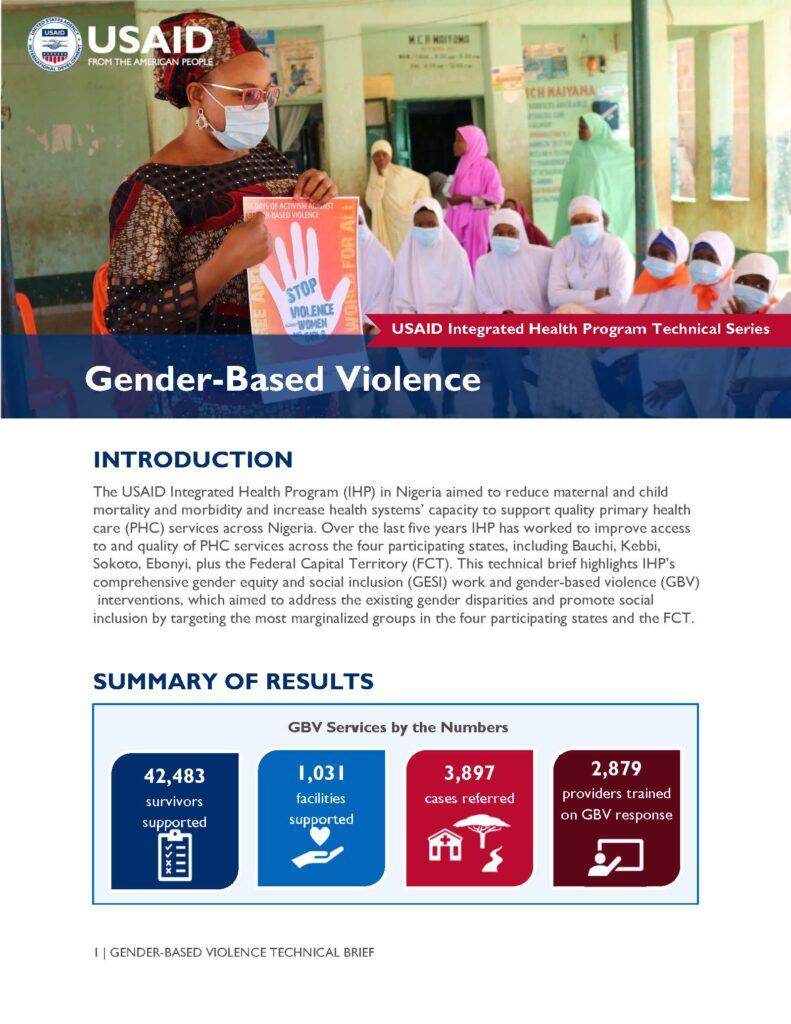Technical Brief: USAID Integrated Health Program – Gender-Based Violence
The USAID Integrated Health Program (IHP) in Nigeria aimed to reduce maternal and child mortality and morbidity and increase the capacity of the health system to support quality primary health care (PHC) services. Over the last five years IHP has worked to improve access to and quality of PHC services across the four participating states, including Bauchi, Kebbi, Sokoto, and Ebonyi, plus the Federal Capital Territory (FCT). This technical brief highlights IHP’s comprehensive gender equity and social inclusion (GESI) work and gender-based violence (GBV) interventions, which were led by WI-HER and aimed to address existing gender disparities and promote social inclusion by targeting the most marginalized groups in the four participating states and the FCT.
Through this technical brief, learn how WI-HER, through USAID IHP, engaged with key multi-sectoral stakeholders to inform and lead a GBV response using evidence-informed and survivor-centered approaches.
This technical brief discusses:
- IHP’s approach to GBV response;
- The healthcare provider training program;
- The creation of GBV Referral Pathways;
- Male engagement activities;
- Effective and relevant reporting to track GBV;
- Lessons learned related to GBV response; and,
- Establishing and strengthening a GBV Technical Working Group, among other initiatives.
As a result of IHP interventions, and with WI-HER as the GESI lead, there has been significant progress integrating comprehensive GBV response services into the health system. The interventions detailed in this technical brief can serve as a model for other projects seeking to address GBV in Nigeria and beyond.
